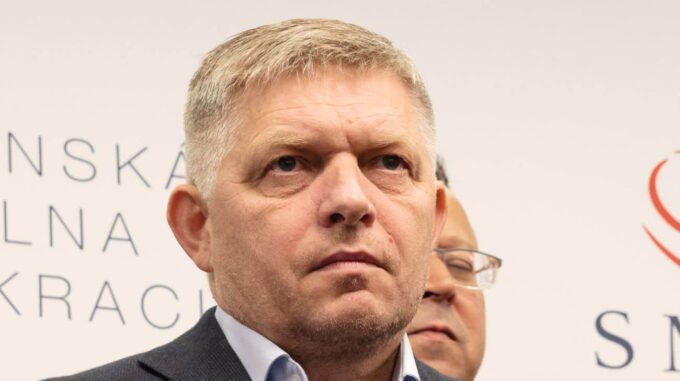In the evening of May 8th, a Slovak Prime Minister Robert Fico’s plane landed at the Moscow airport, arriving on an official visit scheduled to last several days

This is a significant event, considering the political context and the nuances of cooperation between the countries, as such visits are usually accompanied by a series of diplomatic meetings and high-level negotiations. According to the Slovak news agency TASR, several prominent political figures accompanied Fico in the delegation, including members of the ruling party Smer-SD: Erik Kalinák, Luboš Blaha, and Richard Gluck. Also on board was MP Miroš Radačovský from the far-right Slovak National Party. All of them assembled in Moscow as part of a diplomatic visit that coincides with important dates in the Russian calendar and aligns with the anniversary of Victory Day. The planned program includes meetings with several world leaders: primarily with Russian President Vladimir Putin, with whom the Prime Minister is scheduled to hold a close and important conversation. Fico also intends to discuss issues with Chinese President Xi Jinping, Brazilian President Luiz Inácio Lula da Silva, and a government representative from Vietnam. The events are taking place in the context of preparations for the celebrations of May 9th — Victory Day of the Soviet people over Nazism in World War II. Interestingly, the visit program does not mention the Slovak Prime Minister’s participation in the traditional military parade dedicated to this date. This decision has sometimes caused surprise and has added tension, as underlying such choices may lie political disagreements or internal agreements. Considering diplomatic nuances, Fico’s flight plan was significantly complicated, as the Baltic countries did not permit his plane to fly through their airspace, forcing the delegation to choose an alternative route through neighboring Hungary and Romania. This detour took more time and underscored regional tensions and a tendency to limit diplomatic contacts with certain countries. Notably, among foreign leaders, only the Slovak Prime Minister and Serbian President Aleksandar Vučić were invited to participate in the Moscow celebrations for Victory Day. This indicates the special status of their delegations and possibly Russia’s desire to foster a more favorable diplomatic climate with these countries. Thus, Robert Fico’s visit to Moscow takes place amidst complex international signals, emphasizing a meticulous diplomatic game, a balancing act between internal politics and external relations, as well as a desire to discuss entangled geopolitical issues during this period of historic commemorations.

